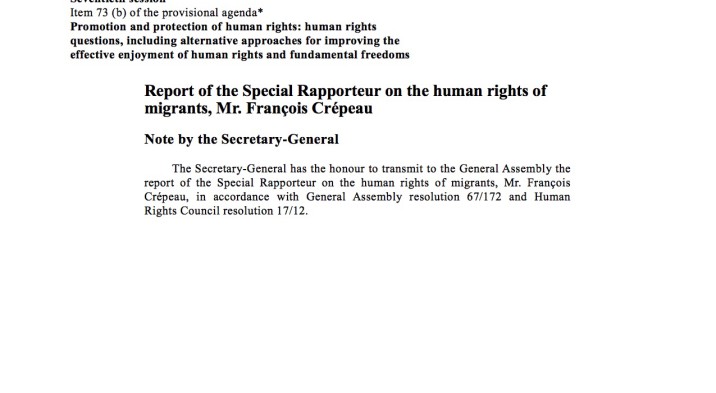
The thematic section of the SR’s report discusses the impact of recruitment practices on the human rights of migrants, particularly low-wage workers, during labour migration. The report outlines the trends relating to recruitment practices and human rights of migrant workers. The report also takes up many of the recommendations put forward by the Open Working Group on Labour Migration and Recruitment in particular our call for zero recruitment fees.
“Effectively banning recruitment fees
50. A key element of transitioning to an ethical system is an outright ban on any recruitment fees being charged to migrants. Recruitment fees are a business-to-business charge and it is unacceptable to pass such costs to often vulnerable migrants who have to take out loans to pay these fees.51. There is currently, in many countries, a complex, confusing and ineffective system of tiered fees, whereby, under the law, recruiters may charge different fees to different migrants depending upon the wage level of the opportunity offered. These limitations on fees are not effectively enforced with migrants often being charged more and/or deceived about the terms and conditions. Legislation to try to limit the fees also inappropriately legitimizes the concept of charging recruitment fees to migrants. Outright bans on recruitment fees avoid complexity and confusion, and contribute to the cultural shift needed to stop migrants accepting fees as an inevitable cost of labour migration. Countries acting collectively as regional or international blocs should totally ban recruitment fees at the same time, so as to ensure that concerns about international competitiveness do not impact wholesale transition to an ethical system”